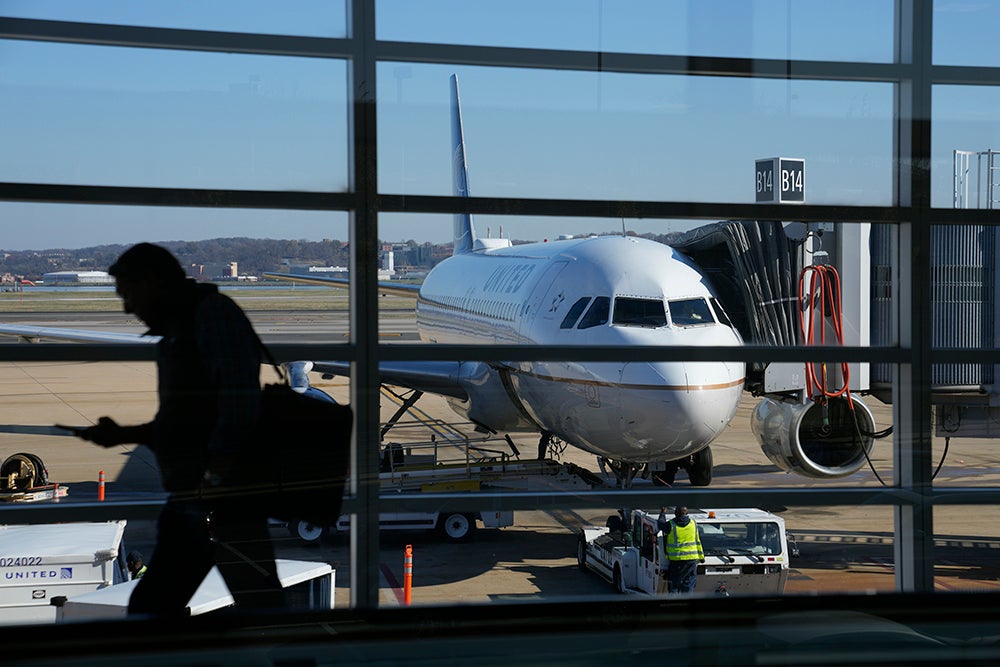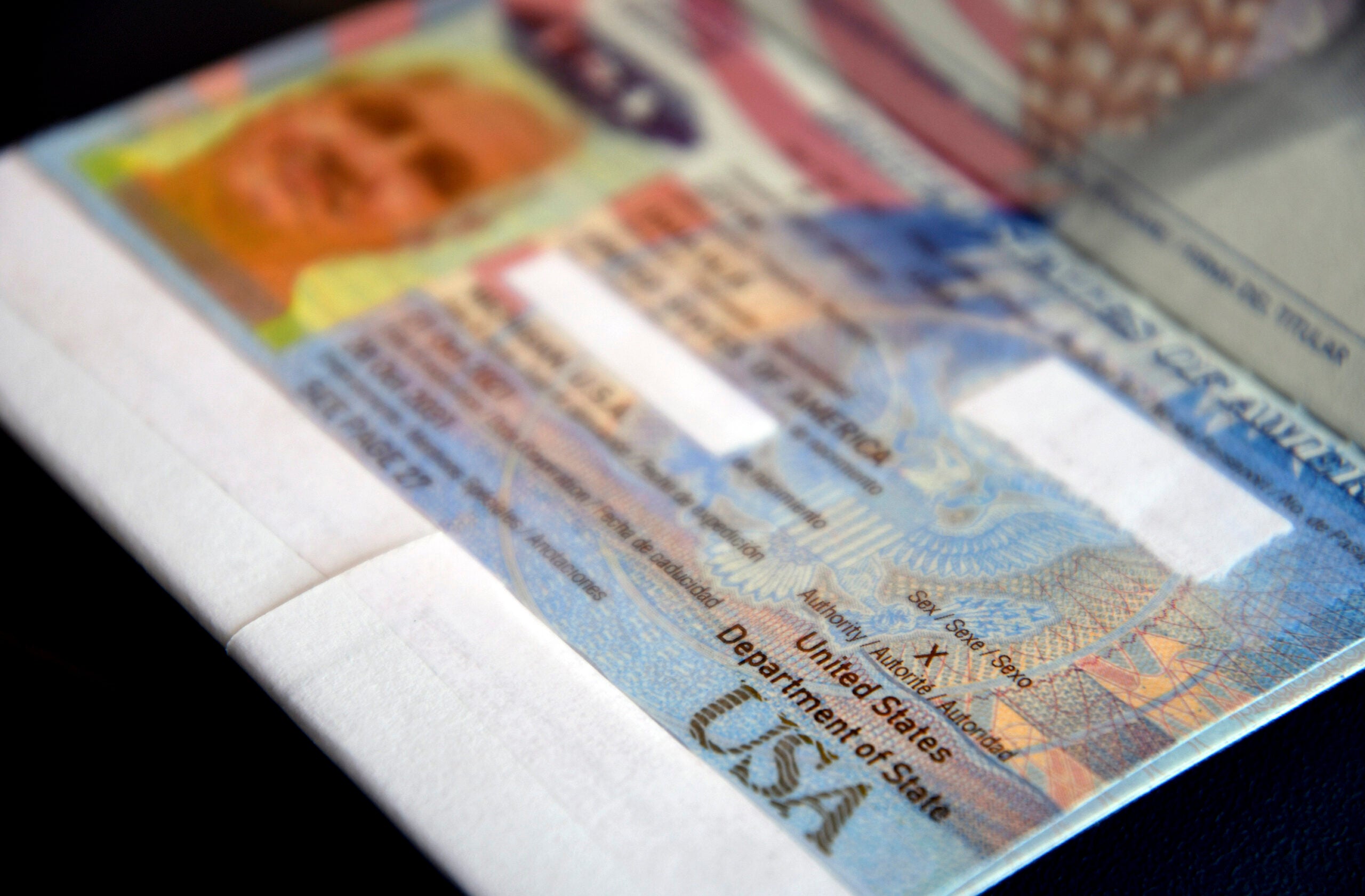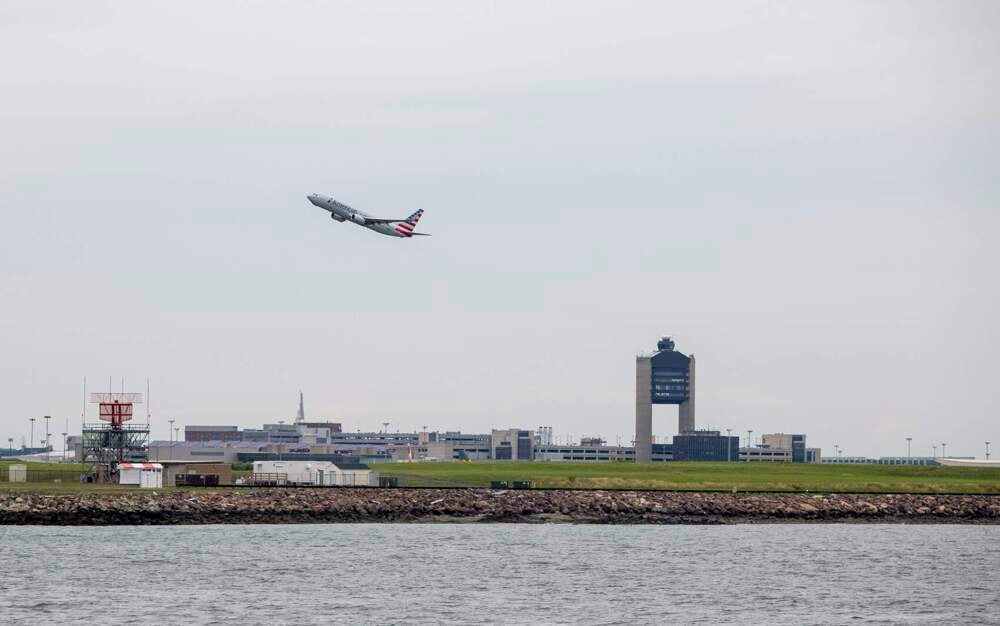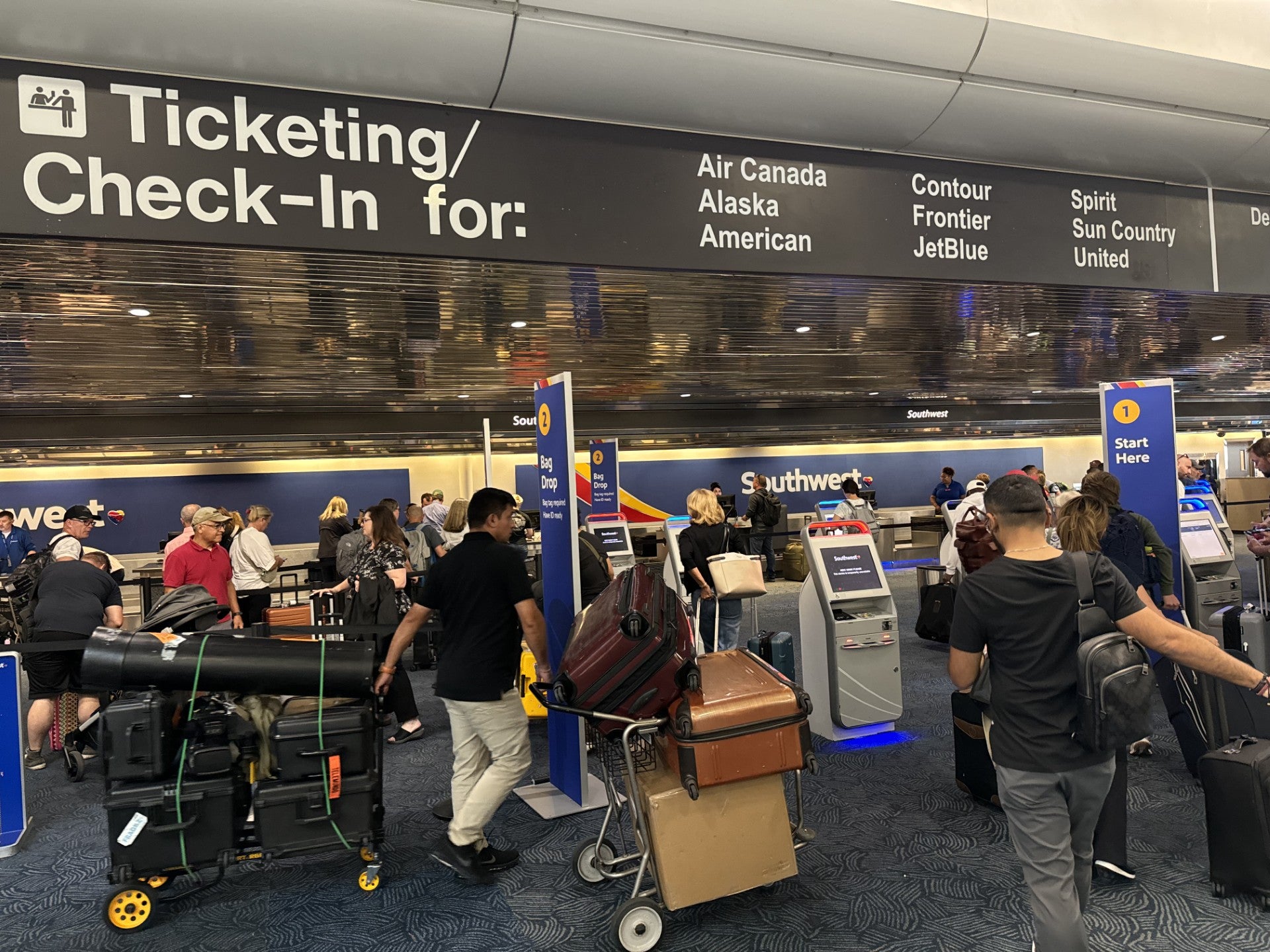After the COVID-19 pandemic grounded flights and upended travel plans for many, “revenge travel” has been taking off.
And there’s little sign of it relenting, said Kari Mullikin, president of Bon Voyage World Travel Experts.
“Revenge travel — it is a thing,” Mullikin said. “When the rights of travelers for a couple of years (were) taken away, now the world is mostly open and people are wanting to go, go, go. So we are incredibly busy and so are the airlines and the hotels and certain places around the world.”
News with a little more humanity
WPR’s “Wisconsin Today” newsletter keeps you connected to the state you love without feeling overwhelmed. No paywall. No agenda. No corporate filter.
In a conversation with Jill Nadeau on Wisconsin Public Radio’s “The Larry Meiller Show,” Mullikin said her offices in Waterford and Union Grove were especially busy after COVID-19 travel restrictions lessened and as people wanted to travel with the help of an agent, citing a feeling of security in knowing someone will work on their behalf should issues arise during travel.
“There was so much that you needed to know if you were to travel post-COVID,” she said. “I really think that our industry, the travel industry, is really something that people look to today that maybe thought previous to COVID to do on their own.”
Mullikin said Europe and Alaska have been popular destination options for travelers since this past summer. Other vacation spots her office has recommended to people looking for less crowded areas include New Zealand, Australia, the South Pacific, South Korea, Canada and Saudi Arabia.
For travelers eyeing trips in 2024, Mullikin said now is the time to begin those plans. For those interested in cruises in popular markets such as Europe and Alaska, she said looking at 2025 isn’t unreasonable.
Depending on where and how you’re traveling, Mullikin offered some tips on what to expect in the coming months.
New requirements
For those planning to travel abroad to European Union countries in 2024, an electronic visa, or Evisa, will be required.
Mullikin said these electronic visas are generally approved within minutes but can take up to 30 days, so plan accordingly. The launch date for these is sometime in 2024, she said, and she expects the cost to be low — probably around 7 euros.
“Don’t be intimidated by those,” Mullikin said, noting there are some countries such as Turkey that already require them.
You can get electronic visas by filling out a form, typically online, asking for general information including:
- Name
- Date of birth
- Gender
- Nationality
- Level of education
- Criminal past
Another consideration for travelers is making sure to get the REAL ID, which will be required for domestic travelers beginning May 7, 2025.
You will need to go to the Department of Motor Vehicles, or DMV, to get an updated ID.
Listener questions
Mullikin answered questions from callers and listeners who emailed in with questions related to travel.
The following questions and guest answers have been edited for brevity and clarity.
Caller: I’m going to be traveling to Greece in a couple of weeks, and I’m wondering how can I go about getting euros before going?
Kari Mullikin: Often your local bank will be able to order those in for you. Otherwise, if you live near a big city such as Milwaukee, some of the banks actually have those on hand. But like I said, they can be ordered in through your branch.
Generally, they take five to seven days depending on the bank. So I would just suggest checking with them.
If you can’t do it there, you can also usually exchange them at the airport or bring your debit card to Europe and use an ATM.
Jill Nadeau: A listener emailed saying they’re booking a trip to Ireland through a travel agent who has their passport information and asked if it’s still recommended that they take a copy of their passport in case it’s lost?
KM: Absolutely. I would definitely take a copy, leave a copy at home with someone in case of an emergency, but then also bring a copy with you that you store in a different location than where your passport is stored.
You do need a passport if you’re leaving the United States — either a passport card, or our recommendation is always the passport book because a passport book is always accepted. A card is accepted in limited locations.
Caller: I’m wondering if there are any tips for traveling by train with Amtrak.
KM: So train travel is always a little bit of an interesting topic. My biggest advice to you would be to plan for some delays. I don’t mean that in a negative way, but in the way that the freight trains have priority over the train lines. So if something were to happen, another delay or something, they’re going to get priority on the line.
If you, for example, had an overnight train, and maybe you plan to visit relatives and you wanted to stay with them for two solid days, I’d probably start that trip planning to be there for three solid days just so if some time gets minimized, you’ve still got a wonderful trip with them.
They’ve got some excellent sleeper car options, but they very much differ. One room might be more like a bunk bed type of situation. So (comfort) depends on the agility of the passengers traveling. Sometimes people don’t read the fine print in terms of what each room category is, so I definitely would pay some attention to that.
Other tips from Mullikin
- Don’t purchase the least expensive ticket without reading the fine print. Many travelers are familiar with basic economy, but now there are more fare structures that the airlines are using now. It could be that your tickets aren’t refundable or exchangeable, or they’re exchangeable but there’s a fee. Make sure you understand the limitations of the least expensive option.
- Become a member of the airline you’re flying with.
- If your flight gets canceled while you’re at the airport, immediately get in line so you have a much better chance of getting an earlier flight.
- Think of your vacation starting the moment you leave your house. Pay attention to what flight you’re booking and whether you could get an upgraded seat that wouldn’t cost much more, that would give you more legroom and the option to sleep if it’s a longer flight. Taking those steps can make your overall travel experience better.
- Consider “give back travel,” which is a way of volunteering time and resources to help the community you’re visiting. Check local tourism boards and find a trusted travel advisor to identify legitimate organizations to work with.
Wisconsin Public Radio, © Copyright 2026, Board of Regents of the University of Wisconsin System and Wisconsin Educational Communications Board.






